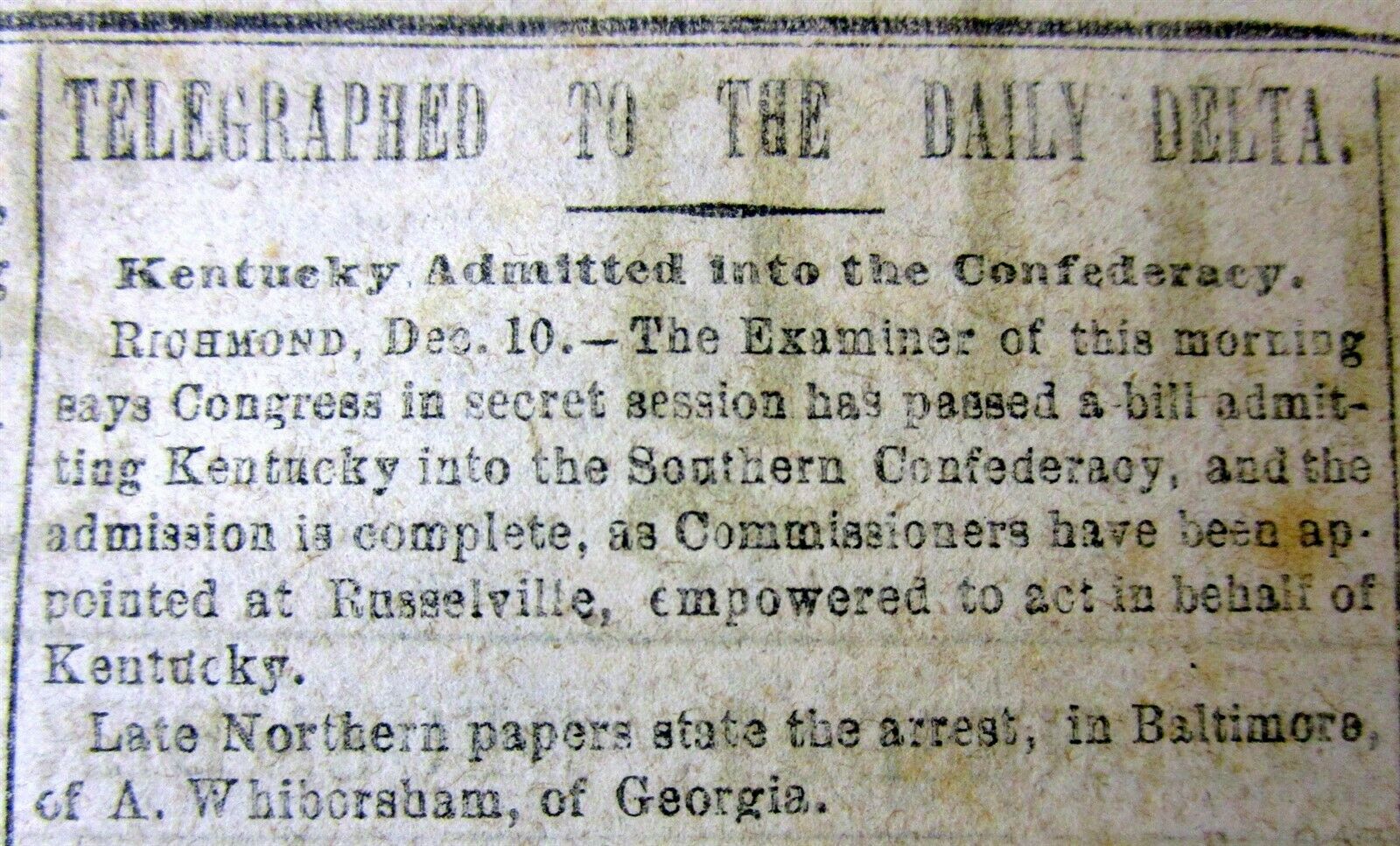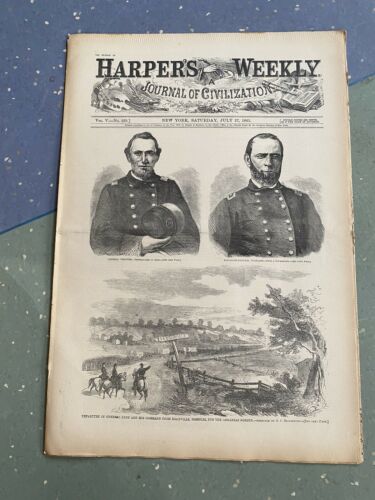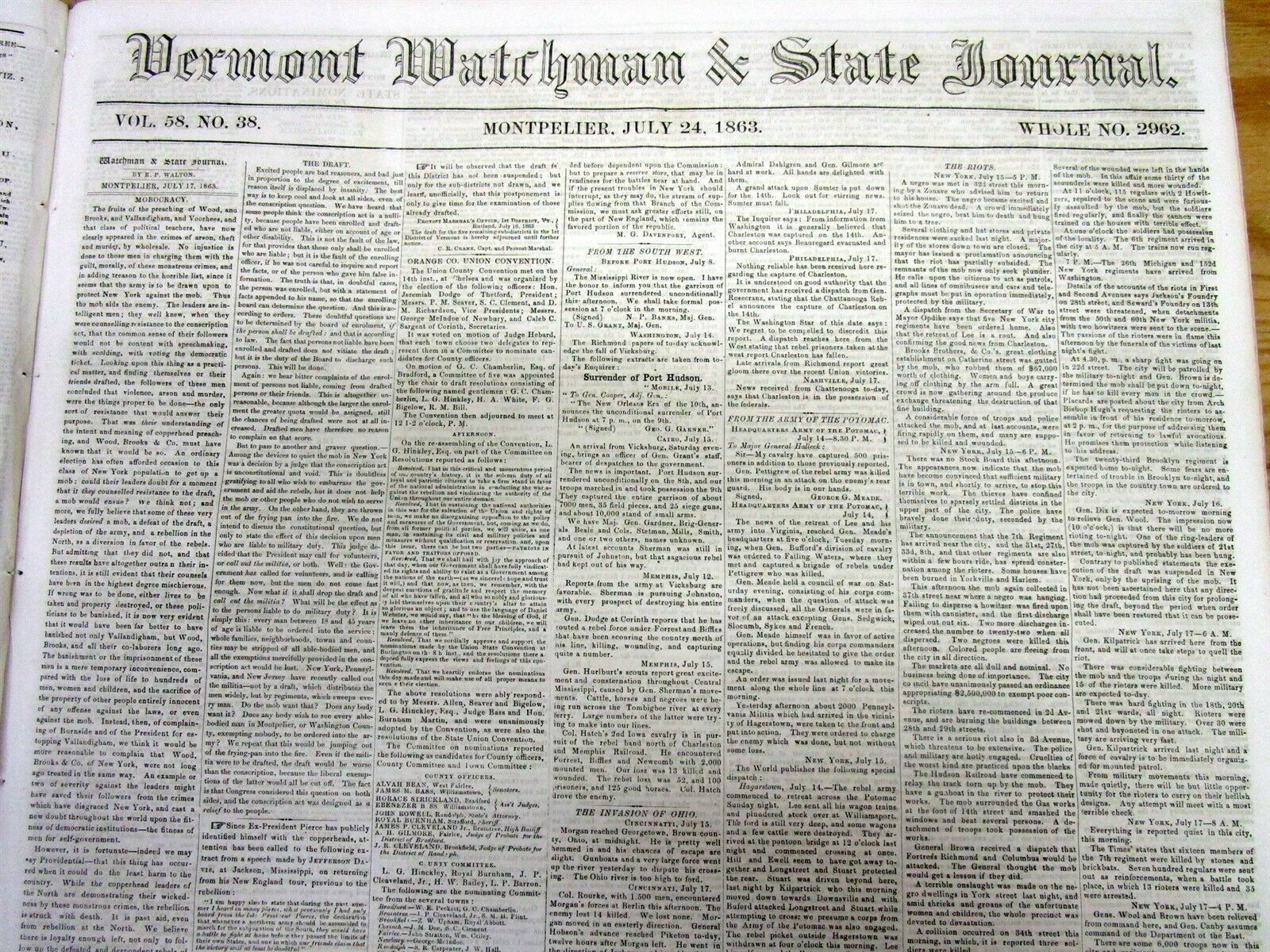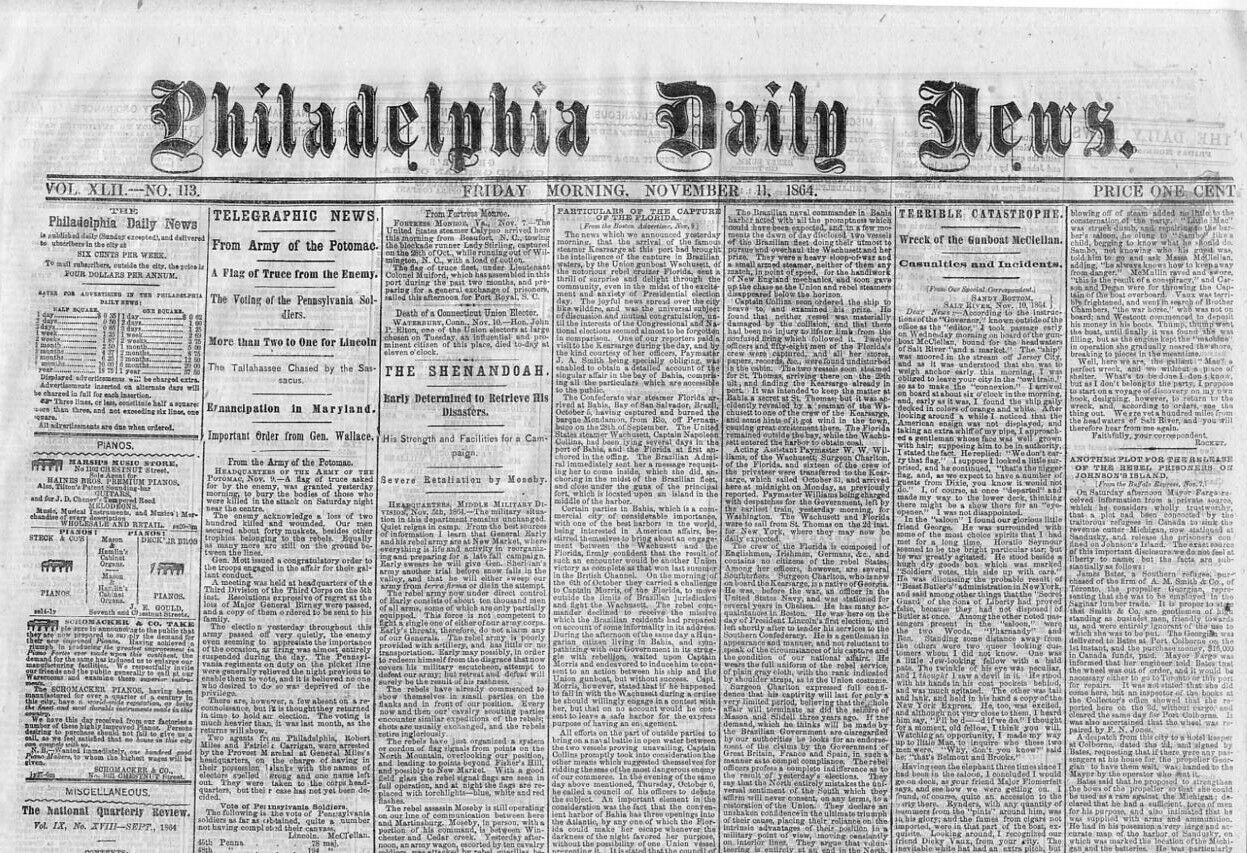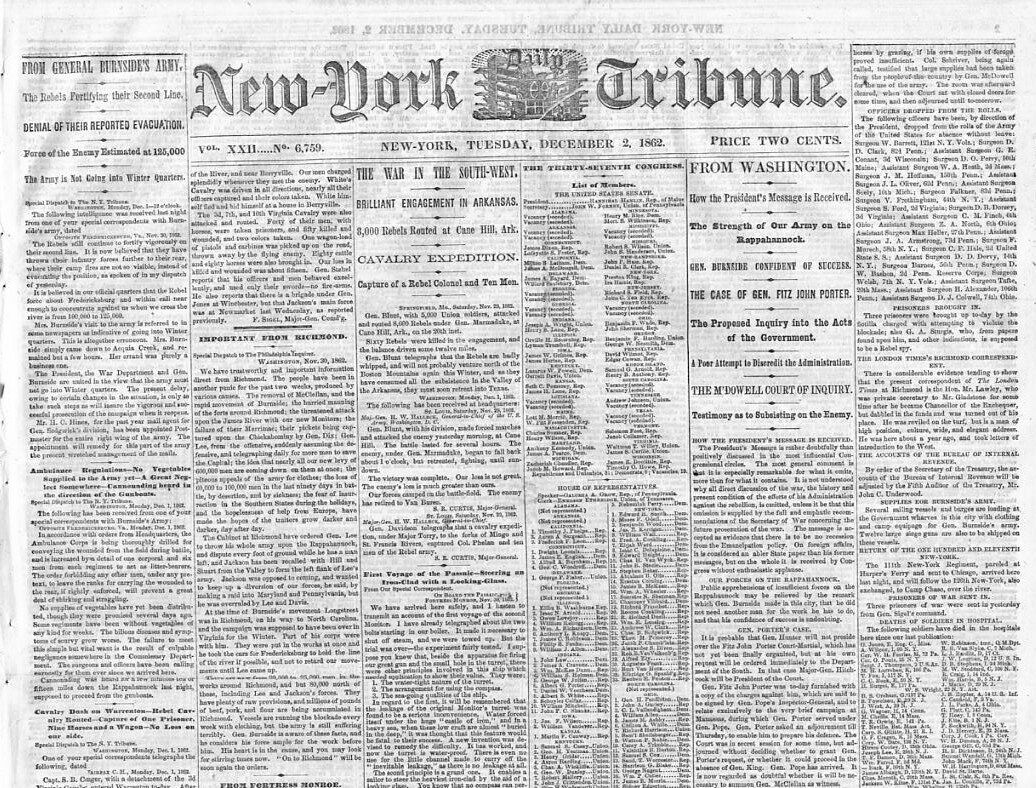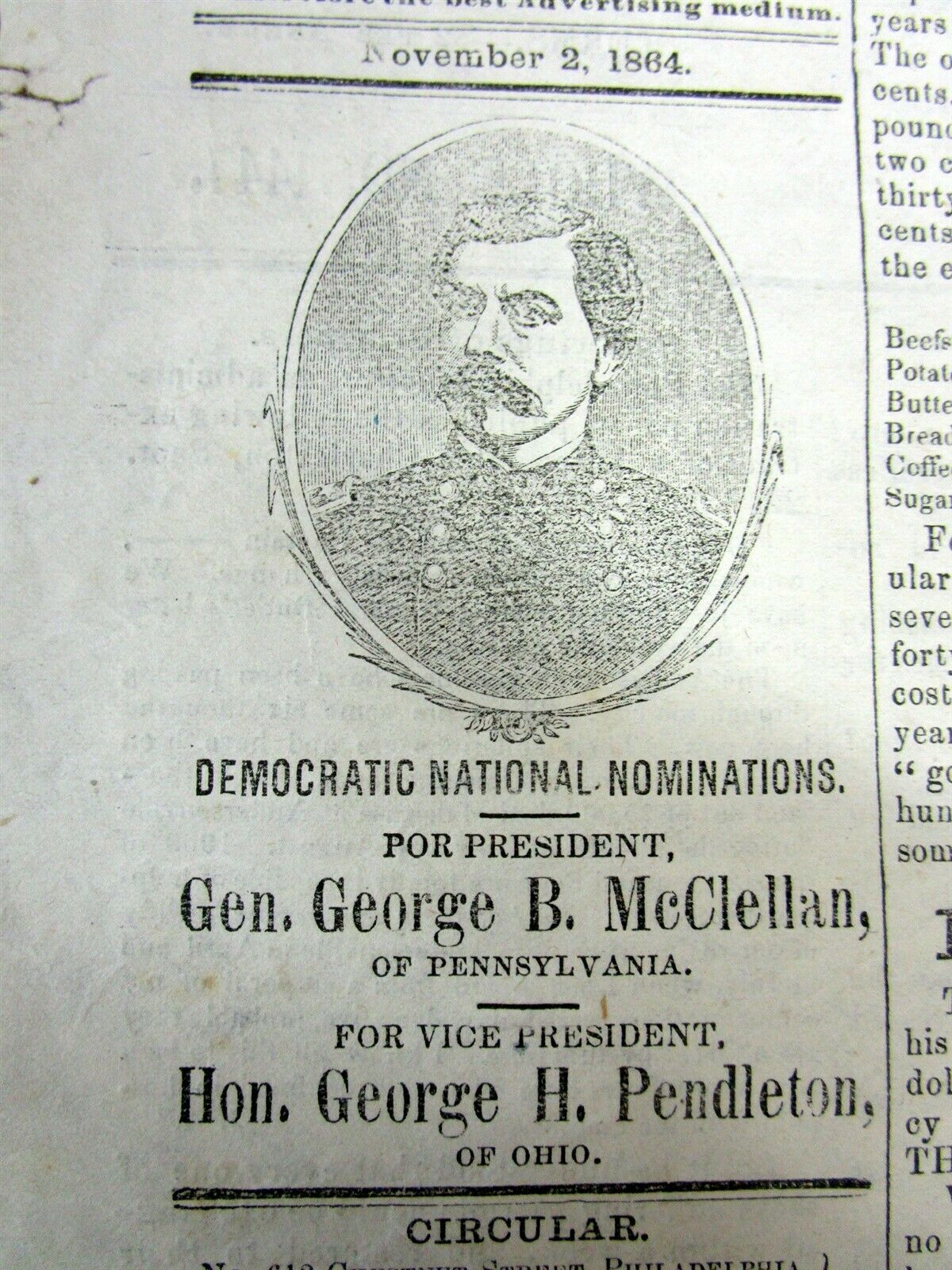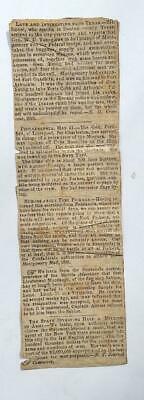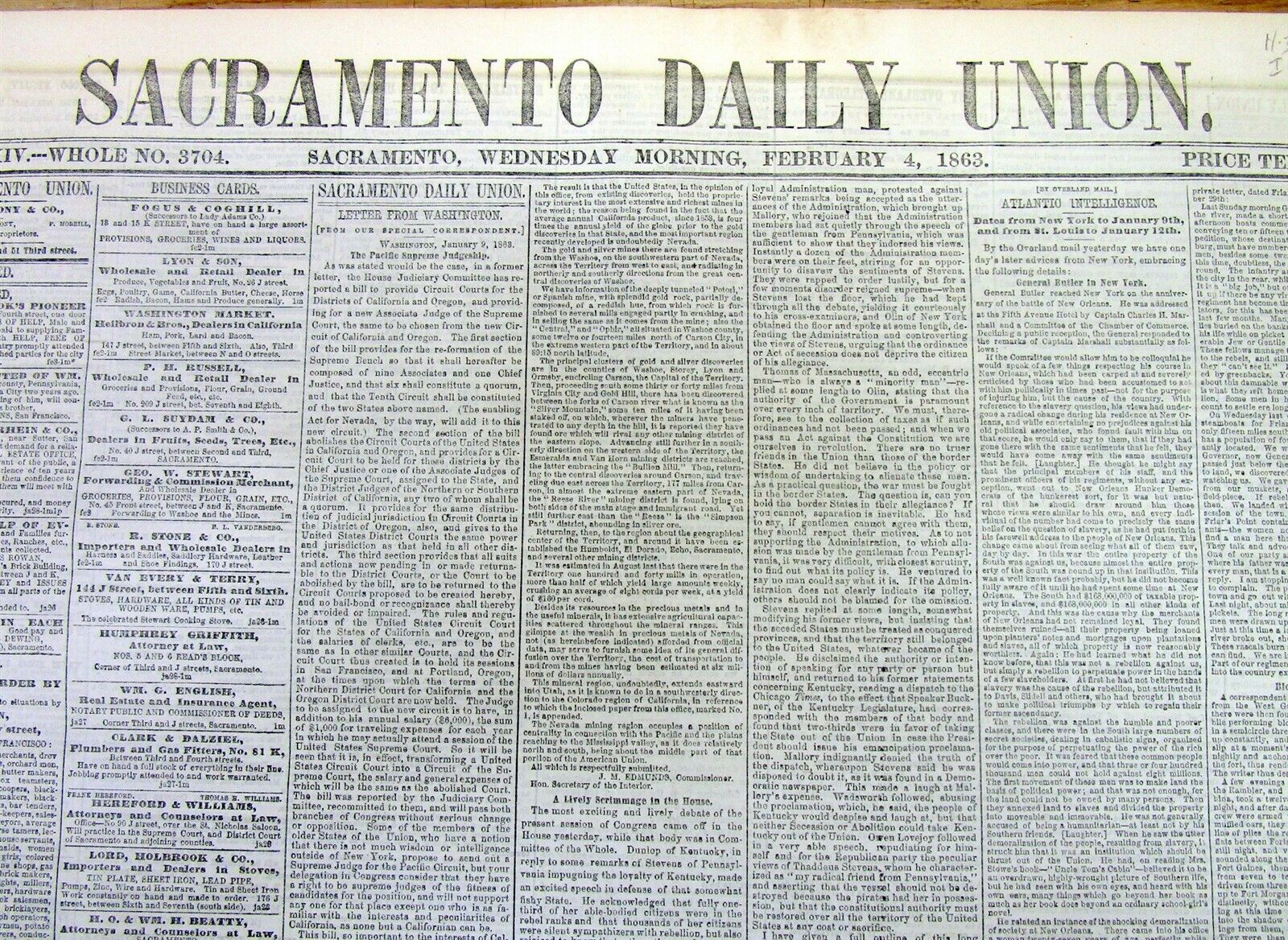-40%
1861 New Orleans LOUISIANA Civil War newspaper KENTUCKY ADMITTED to CONFEDERACY
$ 44.88
- Description
- Size Guide
Description
1861 New Orleans LOUISIANA Civil War newspaper KENTUCKY ADMITTED to CONFEDERACY1861 New Orleans LOUISIANA Confederate Civil War newspaper with news of KENTUCKY ADMITTED to THE CONFEDERACY
- inv # 7R-219
Please visit our
EBAY STORE
for THOUSANDS MORE HISTORICAL NEWSPAPERS for SALE or at auction
SEE PHOTO(s) - COMPLETE ORIGINAL single sheet CONFEDERATE Civil War NEWSPAPER, the
New Orleans Daily Delta
(LOUISIANA) dated Dec 11, 1861. This original Confederate Civil War newspaper contains
news of the STATE of KENTUCKY being ADMITTED to the CONFEDERACY
. This also contains much news of the Civil War, from the perspective of the Conederacy. The New Orleans Daily Delta ceased to be a Confederate newspaper in late April, 1862 when New Orleans fell to the Union and the Daily Delta became a Union Occupation newspaper.
Great item for a present-day resident of KENTUCKY who is interested in the history of KENTUCKY during the Civil War
Kentucky was a border state of key importance in the American Civil War. It officially declared its neutrality at the beginning of the war, but after a failed attempt by Confederate General Leonidas Polk to take the state of Kentucky for the Confederacy, the legislature petitioned the Union Army for assistance. After early 1862 Kentucky came largely under Union control.
The Confederate States of America (CSA), commonly referred to as the Confederate States or the Confederacy, was an unrecognized breakaway state[1] that existed from February 8, 1861, to May 9, 1865, and that fought against the United States of America during the American Civil War. Eleven states with declarations of secession from the Union formed the main part of the CSA. They were South Carolina, Mississippi, Florida, Alabama, Georgia, Louisiana, Texas, Virginia, Arkansas, Tennessee, and North Carolina. Kentucky and Missouri also had declarations of secession and full representation in the Confederate Congress during their Union army occupation.
The Confederate government of Kentucky was a shadow government established for the Commonwealth of Kentucky by a self-constituted group of Confederate sympathizers during the American Civil War. The shadow government never replaced the elected government in Frankfort, which had strong Union sympathies. Neither was it able to gain the whole support of Kentucky's citizens; its jurisdiction extended only as far as Confederate battle lines in the Commonwealth. Nevertheless, the provisional government was recognized by the Confederate States of America, and Kentucky was admitted to the Confederacy on December 10, 1861. Kentucky, the final state admitted to the Confederacy, was represented by the 13th (central) star on the Confederate battle flag.
Bowling Green, Kentucky, was designated the Confederate capital of Kentucky at a convention in nearby Russellville. Due to the military situation in the state, the provisional government was exiled and traveled with the Army of Tennessee for most of its existence. For a short time in the autumn of 1862, the Confederate Army controlled Frankfort, the only time a Union capital was captured by Confederate forces. During this occupation, General Braxton Bragg attempted to install the provisional government as the permanent authority in the Commonwealth. However, Union General Don Carlos Buell ambushed the inauguration ceremony and drove the provisional government from the state for the final time. From that point forward, the government existed primarily on paper and was dissolved at the end of the war.
The provisional government elected two governors. George W. Johnson was elected at the Russellville Convention and served until his death at the Battle of Shiloh. Richard Hawes was elected to replace Johnson and served through the remainder of the war.
Kentucky was the site of several fierce battles, including Mill Springs and Perryville. It was the arena to such military leaders as Ulysses S. Grant on the Union side, who first encountered serious Confederate gunfire coming from Columbus, Kentucky, and Confederate cavalry leader Nathan Bedford Forrest. Forrest proved to be a scourge to the Union Army in western Kentucky, even making an attack on Paducah. Kentuckian John Hunt Morgan further challenged Union control, as he conducted numerous cavalry raids through the state.
Kentucky was the birthplace of Abraham Lincoln, his wife Mary Todd, and his southern counterpart, Confederate President Jefferson Davis. Lincoln had declared, early in the war, "I think to lose Kentucky is nearly the same as to lose the whole game."
In the historiography of the Civil War, Kentucky is treated primarily as a border state, with special attention to the social divisions during the secession crisis, invasions and raids, internal violence, sporadic guerrilla warfare, federal-state relations, the ending of slavery, and the return of Confederate veterans.
35,000 Kentuckians served as Confederate soldiers; an estimated 125,000 Kentuckians served as Union soldiers. Approximately, 24,000 Black Kentuckians, free and enslaved, served as Union soldiers.
This Confederate Civil War newspaper is complete as a single sheet issue. The single sheet newspaper format was used by many Southern newspapers due to the scarcity of paper in the South during the Civil War. This lack of paper was a result of the South being cut off from their normal paper supplies, previously obtained from the Northern paper mills.
Most Confederate Civil War newspapers lack bold single column headlines as were common in Northern newspapers; however, the defiant prose found in Southern newspapers more than makes up for the lack of headlines ! Confederate Civil War newspapers are much scarcer, and much more in demand with collectors than Northern newspapers.
Very good condition. This listing includes the complete entire original newspaper, NOT just a clipping or a page of it. STEPHEN A. GOLDMAN HISTORICAL NEWSPAPERS stands behind all of the items that we sell with a no questions asked, money back guarantee. Every item we sell is an original newspaper printed on the date indicated at the beginning of its description. U.S. buyers pay priority mail postage which includes waterproof plastic and a heavy cardboard flat to protect the purchased item from damage in the mail. Upon request by the buyer, we can ship by USPS Media Mail to reduce postage cost; however, please be aware that USPS Media Mail can be very slow in its time of transit to the buyer. International postage is quoted when we are informed as to where the package is to be sent. We do combine postage (to reduce postage costs) for multiple purchases sent in the same package.
We list thousands of rare newspapers with dates from 1570 through 2004 on Ebay each week. This is truly SIX CENTURIES OF HISTORY that YOU CAN OWN!
Stephen A. Goldman Historical Newspapers has been in the business of buying and selling historical newspapers for over 50 years. Dr. Goldman is a consultant to the Freedom Forum Newseum and a member of the American Antiquarian Society. You can buy with confidence from us, knowing that we stand behind all of our historical items with a 100% money back guarantee. Let our 50+ years of experience work for YOU ! We have hundreds of thousands of historical newspapers (and their very early precursors) for sale.
Stephen A. Goldman Historical Newspapers
has been in the business of buying and selling historical newspapers for over 50 years. We are located in the charming Maryland Eastern Shore town of OXFORD, Maryland.
Dr. Goldman is a consultant to the Freedom Forum Newseum and a member of the American Antiquarian Society. You can buy with confidence from us, knowing that we stand behind all of our historical items with a 100% money back guarantee. Let our 50+ years of experience work for YOU ! We have hundreds of thousands of historical newspapers (and their very early precursors) for sale.
We invite customer requests for historical newspapers that are not yet located in our extensive Ebay listing of items. With an inventory of nearly a million historical newspapers (and their early precursors) we are likely have just the one
YOU
are searching for.
WE ARE ALSO ACTIVE BUYERS OF HISTORICAL NEWSPAPERS, including large and small personal collections, bound volumes, significant individual issues, or deaccessions from libraries and historical societies. IF YOU WANT TO SELL, WE WANT TO BUY !!!
Powered by SixBit's eCommerce Solution
